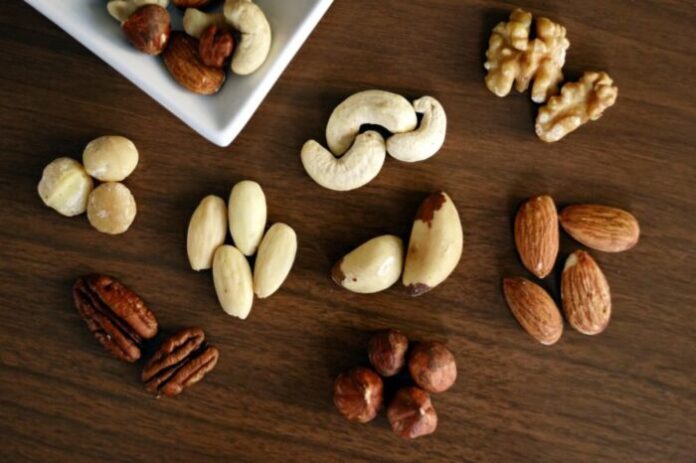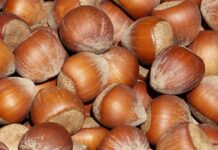
Dried fruit in its many varieties is very rich in nutrients and brings many benefits to the body, if it becomes part of a balanced diet based on the concept of healthy eating. The false myth that wanted the line’s dried fruit has been debunked, provided you consume it in small quantities. In fact, it would help maintain a healthy weight because, despite the high caloric intake, it has a high content of unsaturated fats – which metabolize very quickly and bring numerous benefits to the body – of proteins, fibers, vitamins, essential fatty acids omega 3, which increase the sense of satiety thus causing you to eat less.
The high mineral and vitamin content optimizes the development of energy for muscular work. Elements such as magnesium, potassium and the various B vitamins can provide us with a very large amount of concentrated or prolonged energy depending on the fruit we choose. It contains an optimal protein share on average, providing those Amino acids that help the reconstruction of muscle tissue after a physical effort and can help us to better sustain the daily fatigue.
Moreover, walnuts, hazelnuts, almonds and the like are precious allies for the cardiovascular system. Those who consume it regularly, in fact, have 29 percent less chance of dying from cardiovascular diseases (because oil seeds increase the “good” HDL cholesterol that helps to keep blood pressure under control and to lower levels of inflammation) and 11 percent less cancer.
Dried fruits are also rich in vitamins, especially A and E; in smaller quantities we find vitamin C and vitamin K. Especially in oily fruits there are many mineral salts, such as potassium, phosphorus, magnesium, calcium and zinc. Walnuts, hazelnuts, but above all almonds, are rich in iron. The quantity of fiber is also high. Containing many mineral salts, dried fruit is recommended for those who do sports, because it helps to replenish the nutrients that are lost due to sweating.
However, since 100 g of dried fruit bring about 600 calories, a reasonable portion should not exceed 20 g per day, or the “side effects” would exceed the benefits. But we see in detail the properties of the individual fruits:
Hazelnuts: they are among the richest fruits of vitamin E. They also contain phytosterols, useful substances for the prevention of heart and circulatory diseases. They contain good fats that can lower LDL cholesterol levels. They have a good magnesium content, a mineral that regulates calcium levels in the muscles.
Walnuts: rich in vitamin E, Omega 3 fatty acids, Omega 6 and magnesium, they are astringent, tonic, healing, anti-inflammatory, disinfectants against intestinal parasites and able to regulate blood sugar levels reducing the risk of developing atherosclerosis and cardiovascular diseases.
Almonds: they contain proteins, monounsaturated fatty acids, vitamins (especially B2 and E) and numerous mineral salts (manganese, magnesium, calcium, copper, phosphorus), are therefore considered anti-anxiety, improve mood, help the intestine (constipation) and concentration.
Pistachios: rich in vitamins A and B, proteins, omega 6 and minerals, help against arthritis, diabetes and skin diseases.
Peanuts: have a high content of arginine (essential for growth), mineral salts and are a good source of polyphenols (resveratrol), substances with high antioxidant power.
Pine nuts: they provide protein, fiber, provitamin A, vitamin E, iron, calcium, magnesium and starch, and are recommended for those suffering from chronic fatigue and weakness. Very useful also to enhance mental energy.
Cashews: they contain a high percentage of monounsaturated fats, folic acid, vitamins B1 and B2, selenium and plant sterols, are antidepressants and counteract bad cholesterol.






































